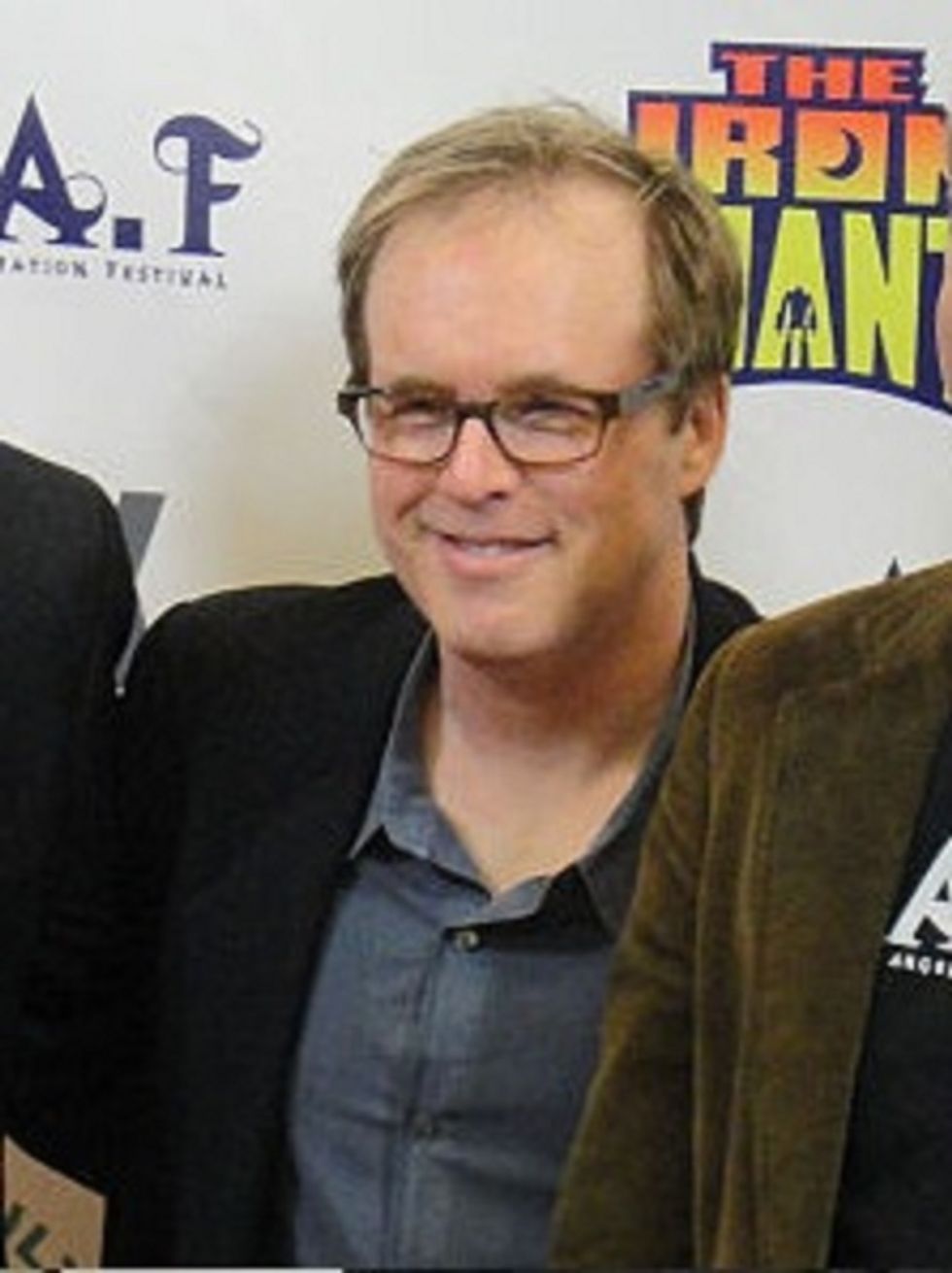Recently I had the pleasure of seeing "Incredibles 2" in theaters. I thoroughly enjoyed the movie, it was pretty funny and had enough good action scenes to rival any summer blockbuster, and afterward I decided to indulge in something that had become a habit of mine when I really enjoy a movie, reading the critical reviews. I started doing this largely as a way to get a better perspective on the movies I like and pickup on anything I may have missed while watching. With "Incredibles 2" the critics only sang its praises, but there was something I noticed, the reappearance of the theory that Brad Bird laces his movie with Objectivist philosophy. Intrigued by this notion, I've decided that this question could use a more thorough examination by analyzing several of Brad Bird's films and seeing if it all adds up.
Before going any further it's important to gain some perspective on exactly what Objectivism is. Objectivism is the metaphysical and ethical 'philosophy' developed by Ayn Rand that is most famous for stating that selfishness is a virtue and altruism is the root of all evil. For the more pop culture inclined, just think Andrew Ryan from "Bioshock" and you have a pretty good picture of her ideas. Academically few philosophers take objectivism seriously and most write it off as a half-baked ideology with intellectual trappings at best. Culturally and politically, however, objectivism has quite a hold with figures from former Federal Reserve Chairman Alan Greenspan to Speaker of the House Paul Ryan, both claiming it has influenced them. People usually argue Bird is a closet objectivist by focusing on his portrayal of elites and their role in society.
The first movie to examine, and probably the one most commonly cited in arguments about his political leanings, is his Pixar hit "The Incredibles." Superheroes are probably the closest one can come to making an objectivist parable, with individuals possessing powerful natural talents unconstrained by society standing above the masses. On its surface, "The Incredibles" seems to fully buy into this identity with one of the central themes being a rejection of the conformist and mediocre conventions of society to embrace what makes you special. Looking deeper, however, this narrative becomes much more complex thanks to that most vile of vices, altruism. The motives of the various 'supers' are inherently altruistic; they are striving to use their immense powers to help people for no other reason than it's the right thing to do. This plays out in miniature with the character arc of Mr. Incredible. At the start of the movie he is acting primarily to stroke his own ego and relive his past glory, and ultimately suffers for it. Later when he realizes that his own ego is not that important in comparison to the wellbeing of his family, he is able to overcome the villain Syndrome and save the day.
Before venturing to talk about "Incredibles 2," where many of the themes of the first movie are expanded upon, I wish to spend a moment analyzing Bird's interesting, but much maligned movie "Tomorrowland." The world of "Tomorrowland" would appear to be an objectivist's wet dream, a world free of law and government where the world's most creative people are allowed to live unfettered lives. And yet the movie flips this completely on its head as Tomorrowland is portrayed as a desolate world every bit as oppressive and bleak as the real world as a consequence of its isolation, a far cry from the technological utopia it promotes itself to be. The hero of the story by contrast, the plucky optimistic Casey, rejects this wholesale abandonment of the world and strives to make Tomorrowland live up to its promise of providing a better and brighter future for all mankind.
Finally we return to the world of Incredibles with the long awaited sequel "The Incredibles 2." The second film handles many of the same themes about the role of supers and society, while adding in a new set of issues revolving around the ethics of breaking unjust laws and societies reliance on screens and other gadgets, you know typical kid stuff. After exploring what damage 'supers' could do if their power fell into the wrong hands, the movie ultimately endorses the same conclusion that the first one reached; that 'supers' use their power for good not for any special attention, but because it's the right thing to do and it is for that reason that they deserve our admiration and respect.
Those people who see Brad Bird's movies and liken them to objectivism miss both the point of his films and the core tenants of that 'philosophy.' Bird's films are full-throated defenses of altruism and its value in guiding human actions and behavior, making them the complete antithesis of objectivism's and its selfishness. And for the elitism he displays in his films, Brad is unique among most modern artists in that he portrays elites as potentially being a good thing for society. In a world in which talent and ability are not distributed equally, society can create a sort of symbiotic relationship with those individuals by offering them prestige and status in exchange for them serving society. In this he is much closer to Nietzsche and his Superman than Rand and her Fountainhead. With the trust in institutions at an all time low, and calcified but competent elites being replaced by idiots playing populist dress up across the globe, perhaps there is some merit in considering this more positive approach to elites in society. Perhaps it will lead to that great big beautiful tomorrow after all.









































